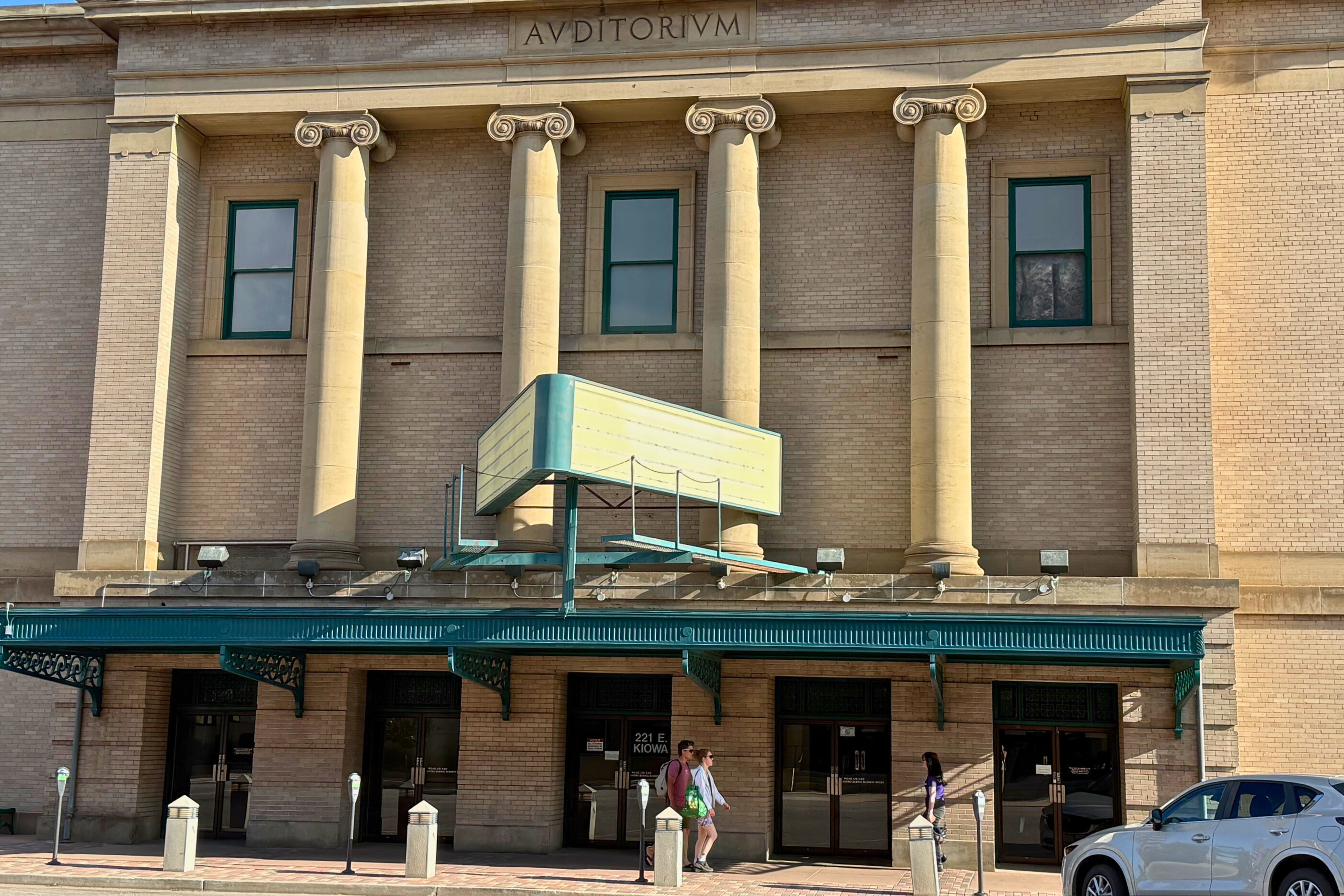 Alejandro Menocal was held at an immigration processing center in Aurora for about four months earlier this year. On Thursday, standing just outside the center, he announced that he's suing the private company that runs it, The GEO Group, Inc. He's joined in the suit in U.S. District Court in Colorado by eight other current or past detainees.
Alejandro Menocal was held at an immigration processing center in Aurora for about four months earlier this year. On Thursday, standing just outside the center, he announced that he's suing the private company that runs it, The GEO Group, Inc. He's joined in the suit in U.S. District Court in Colorado by eight other current or past detainees.
Menocal said he and the others were required to do manual labor for little to no money.
"Everyday I would wake up at 5 a.m. to set up to serve meals," he said. "And then I would hand out brooms, mops, cleaning supplies to the detainees… Detainees cleaned out moldy showers, detainees cut hair, detainees cleaned the cells where we were housed, detainees did the outside maintenance in the yard."
The GEO Group is contracted by the federal government. Menocal and the other detainees say the pay is $1 a day, and sometimes nothing, for their work. They allege GEO's employees threatened to put them in solitary confinement if they didn’t work.
While many prisoners at jails and prisons work for little or no money, people detained at immigration centers are civil detainees who have not been convicted of crimes, and some are in the country legally. Menocal said on Thursday that he recently won his immigration case, and has been a legal permanent resident of the United States for about 25 years.
The allegations have not yet gone to trial. But in an investigation earlier this year, New York Times reporter Ian Urbina looked into similar claims at immigration centers around the country. The federal government is "relying on tens of thousands of... immigrants each year to provide essential labor — usually for $1 a day or less — at the detention centers where they are held when caught by the authorities," Urbina found.
The GEO Group declined to be interviewed by CPR News, but issued a statement.
"GEO’s facilities, including the Aurora, Colo. facility, provide high quality services in safe, secure, and humane residential environments, and our company strongly refutes allegations to the contrary," the statement says. "The volunteer work program at immigration facilities as well as the wage rates and standards associated with the program are set by the Federal government. Our facilities adhere to these standards as well as strict contractual requirements and all standards set by ICE [Immigration and Customs Enforcement], and the agency employs several full-time, on-site contract monitors who have a physical presence at each of GEO’s facilities."
Urbina reported that ICE authorities told him the work programs are voluntary; require detainees to be paid $1 a day; and allow detainees to do only work that "contributes to the operation of their detention facility." But he found that some detainees say they often are not paid or are paid with goods like candy bars, and say they sometimes do work for people outside the facility, like making food for prisoners at a local jail.
Earlier this year, people held at an immigration detention center in Tacoma, Wash., conducted a hunger strike to protest their treatment, including the $1 a day they earned for work on site. The strikers were eventually released and Rep. Adam Smith, a Democrat from that state, introduced a bill to address some of their concerns.
H.R. 4620 includes a provision on "voluntary work."
"Detainees shall not be the primary source of labor for the essential function required to operate detention facilities," the bill says. "All work opportunities shall comply with [Occupational Safety and Health Administration]. The rate of pay shall be reviewed by the Secretary on an annual basis. The Secretary shall make publically available a report on the rate of pay, job descriptions, and full time equivalents for employed detainees compared to full time staff in each detention facility."
The bill has been referred to a House committee for consideration.









